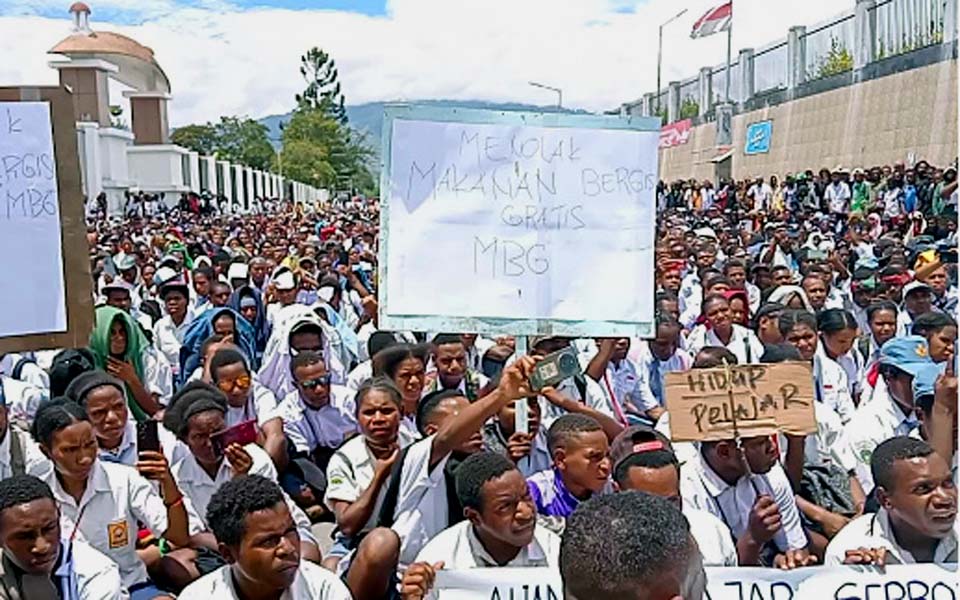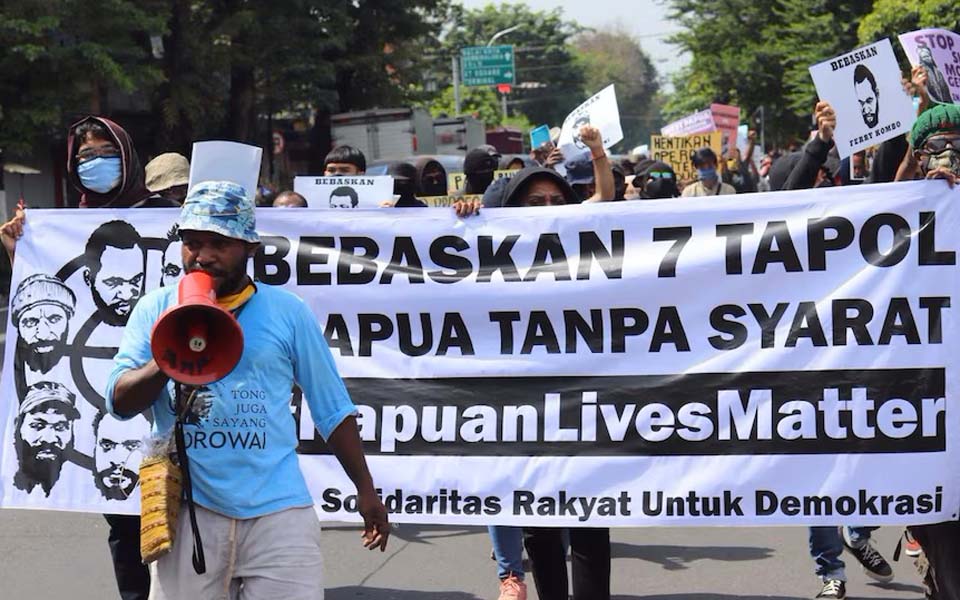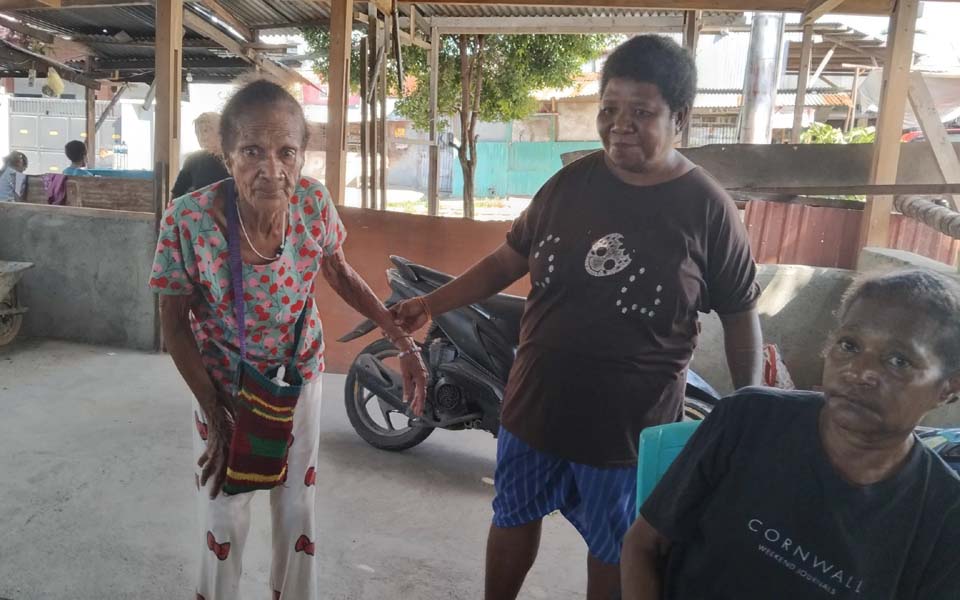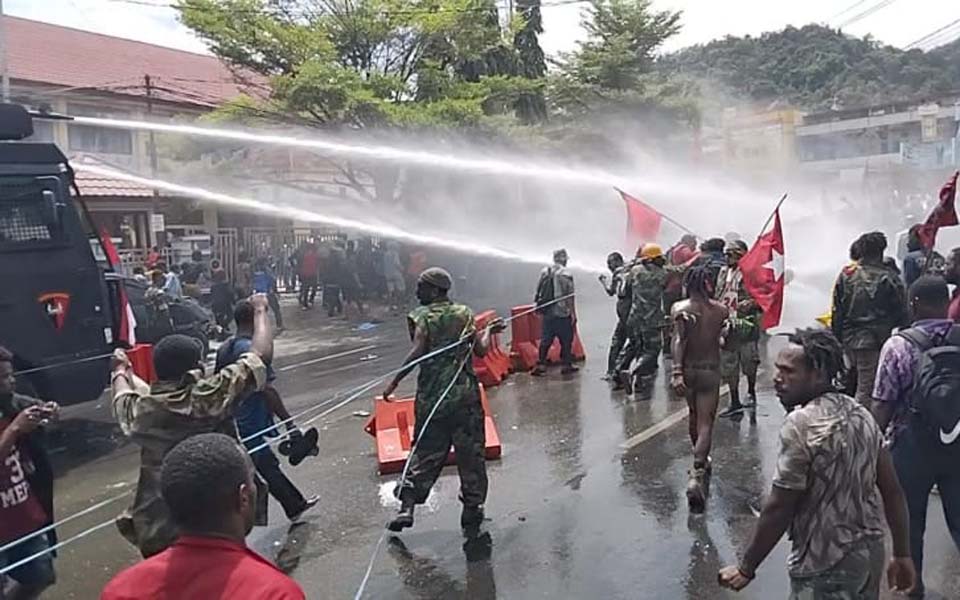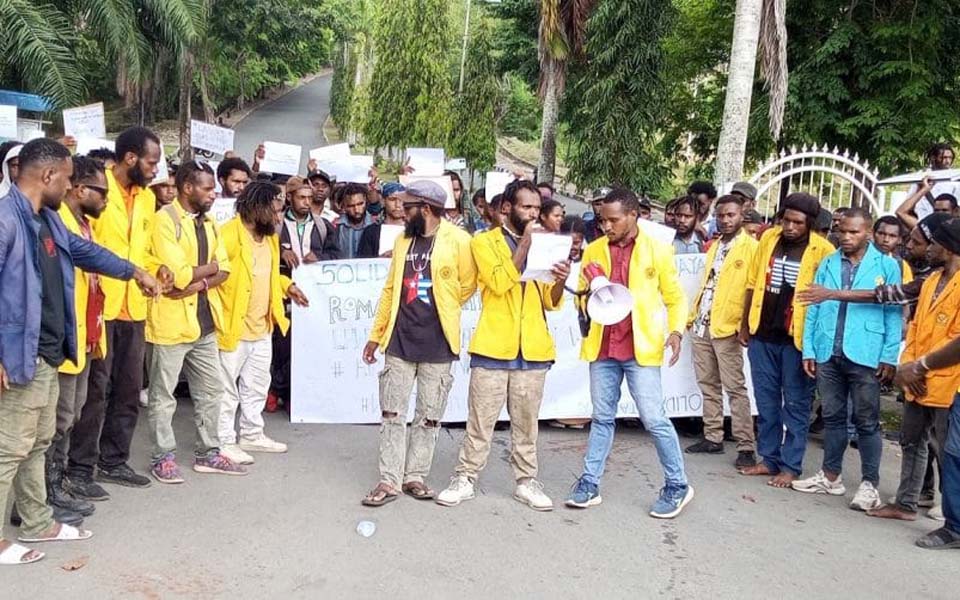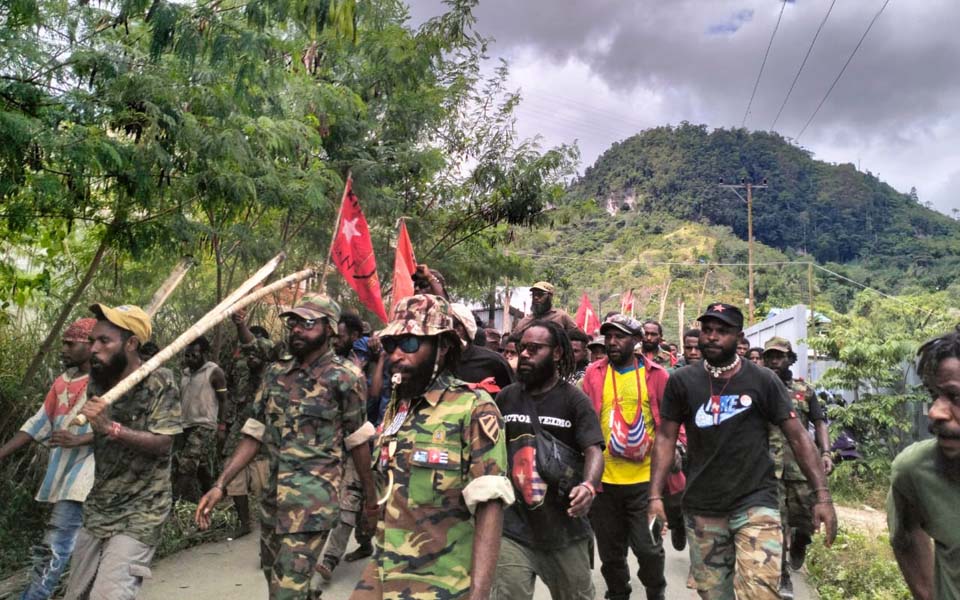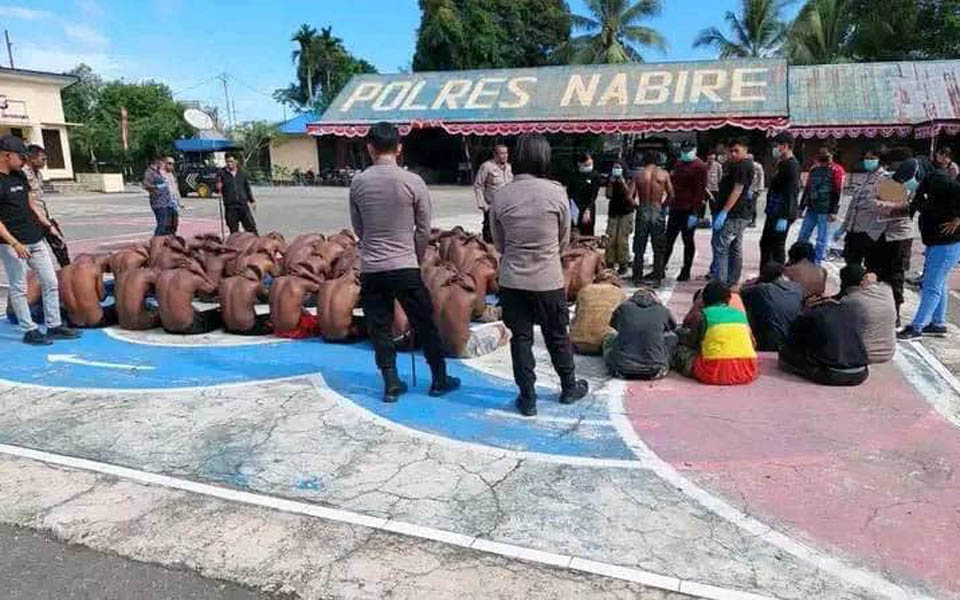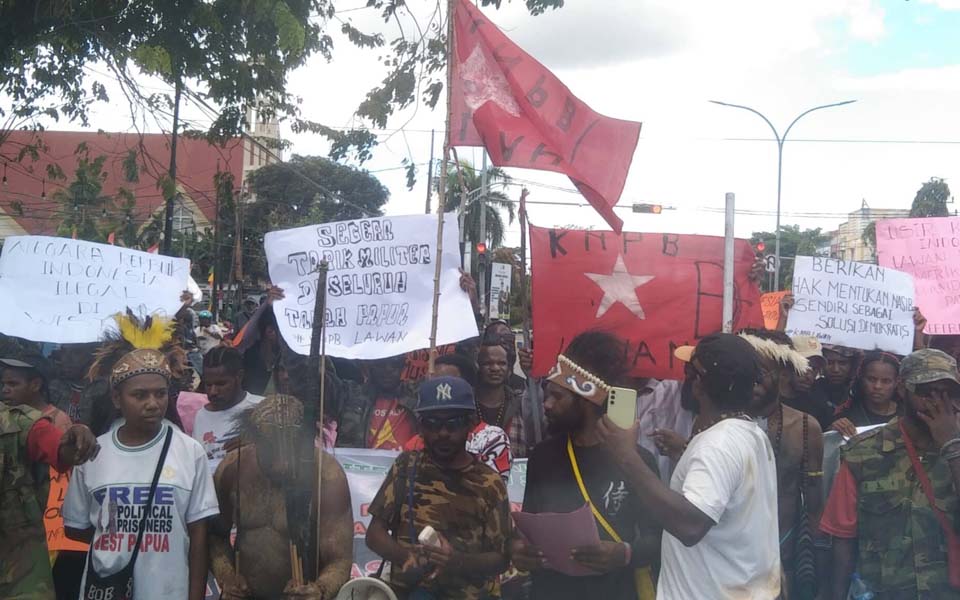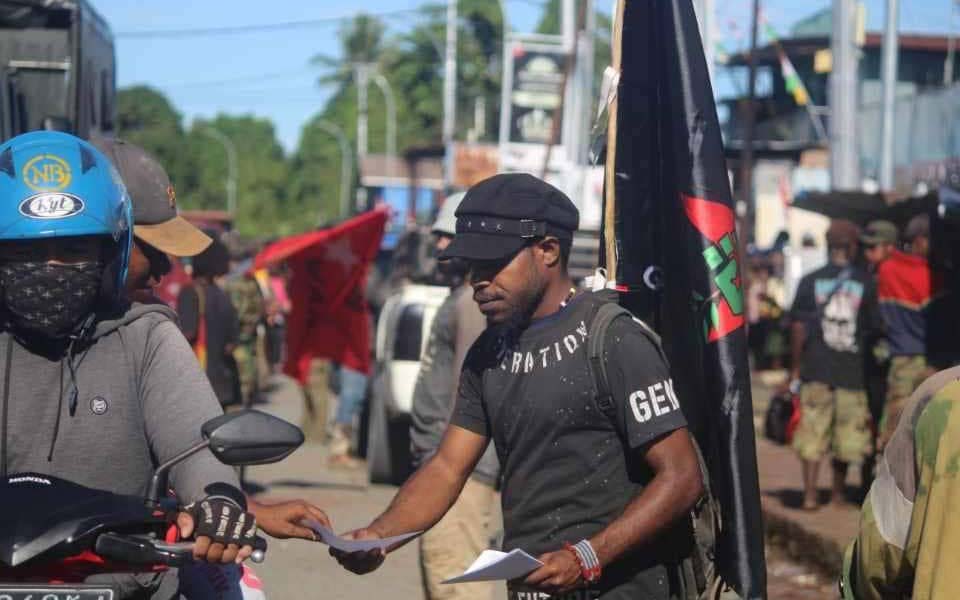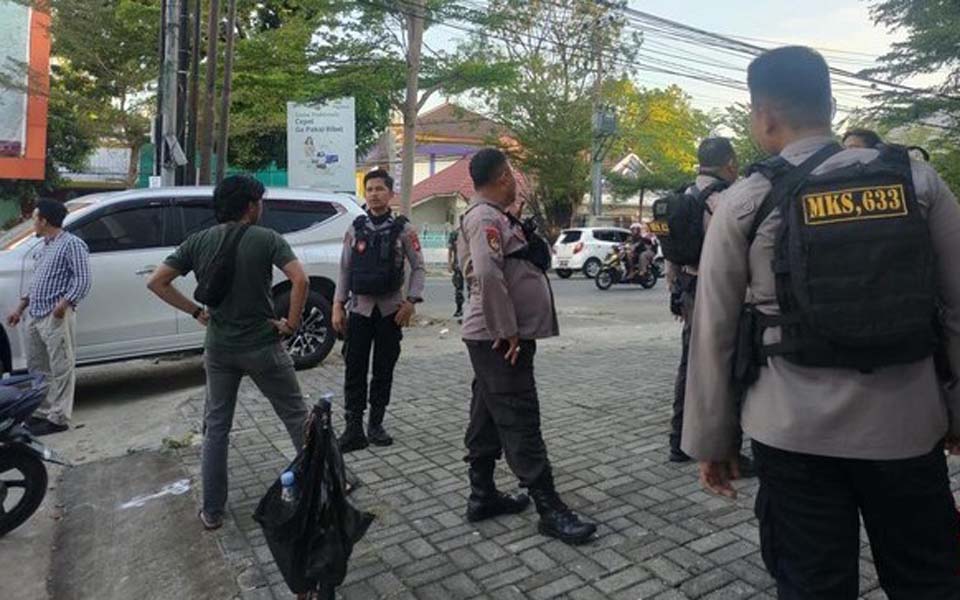Zakarias Demon Daton, Samarinda – A preliminary hearing to hear the reading out of charges against seven defendants arrested over the September riots in Papua was held at the Balikpapan District Court in East Kalimantan on Tuesday February 11.
The seven defendants being tried on charges of makar (treason, subversion, rebellion) are Alexander Gobay, Fery Kombo, Hengki Hilapok, Buchtar Tabuni, Irwanus Uropmabin, Steven Itlay and Agus Kossay.
During the arraignment hearing, the team of prosecutors led by Adrianus Tomana from the Papua chief public prosecutor’s office charged the seven defendants with incitement to commit makar.
The seven defendants are being charged under Article 106 of the Criminal Code (KUHP), Article 110 Paragraph (1) of the KUHP, Article 82 of APP Number 12/2017 on Social Organisations, Article 160 of the KUHP and Article 55 Paragraph (1) of the KUHP on incitement to commit makar which carries a sentence of 10 years jail.
“They sought to separate themselves [Papua] from the state of the Republic of Indonesia”, said Tomana in the indictment.
One of the lawyers representing the seven defendants, Yohanis Mambrasar, said that they would present two points of objection to the prosecution’s charges at the next hearing to hear the defendants’ demurrer on Thursday February 20.
According to Mambrasar, they object to the use of the makar articles against their clients because when they were arrested, they were simply holding a demonstration against racism.
There were no elements constituting makar during the protest action. “This article is vague”, said Mambrasar when contacted by Kompas.com on Wednesday February 12.
Moreover, in the indictment, he said, the prosecutor himself said that the defendants were arrested for holding a protest against racism.
“Meaning that the [use of] the makar article is wrong. For makar [to be proven] there must be an act [of makar]. Makar is a material offense so an act must be committed, if it’s just talking then it cannot be subject [to the article]”, he explained.
The other objection relates to the trail being held at the Balikpapan District Court. According to Mambrasar the location makes it difficult for the defendants’ families to be present as well as witnesses to be presented, all of whom are from Papua.
Moreover, the witness to be presented by the public prosecution will also be from Papua so it will increase the trial costs significantly.
Aside from this, in term of legal jurisdiction the trial should be held at the Jayapura District Court because the defendants committed the acts they are being tried for in Jayapura, Papua.
“Because the relative authority of a PN [district court] to try a case is based on the legal jurisdiction”, he said.
According to Mambrasar, if not, then the court is violating its own relative authority. It also goes against the principles of a simple, short and speedy trial. Meanwhile holding the trial at the Balikpapan District Court makes it difficult for the families of the defendants to attend.
“The fact is that not all of the defendants’ families were able to attend yesterday’s hearing. There were only two wives of two of the defendants”, he explained.
If the trial of the political prisoners was moved to the Balikpapan District Court on the grounds of security, said Mambrasar, these grounds are fabricated.
This is because there are several similar cases which are also being tried by the Jayapura District Court – more than 50 cases and all of them have proceeded peacefully.
Nevertheless, Mambrasar hopes that the judges can hand down a fair verdict in the midst of the public scrutiny surrounding the case.
As has been reported, the seven Papuans were arrested in Jayapura and Sentani at different times in September 2019 following the riots that broke out in Jayapura city.
On November 4, 2019 the police then transferred the seven to the East Kalimantan District Police on security grounds.
[Translated by James Balowski. The original title of the article was “7 Terdakwa Rusuh Papua Didakwa Makar, Kuasa Hukum Ajukan 2 Poin Keberatan”.]






